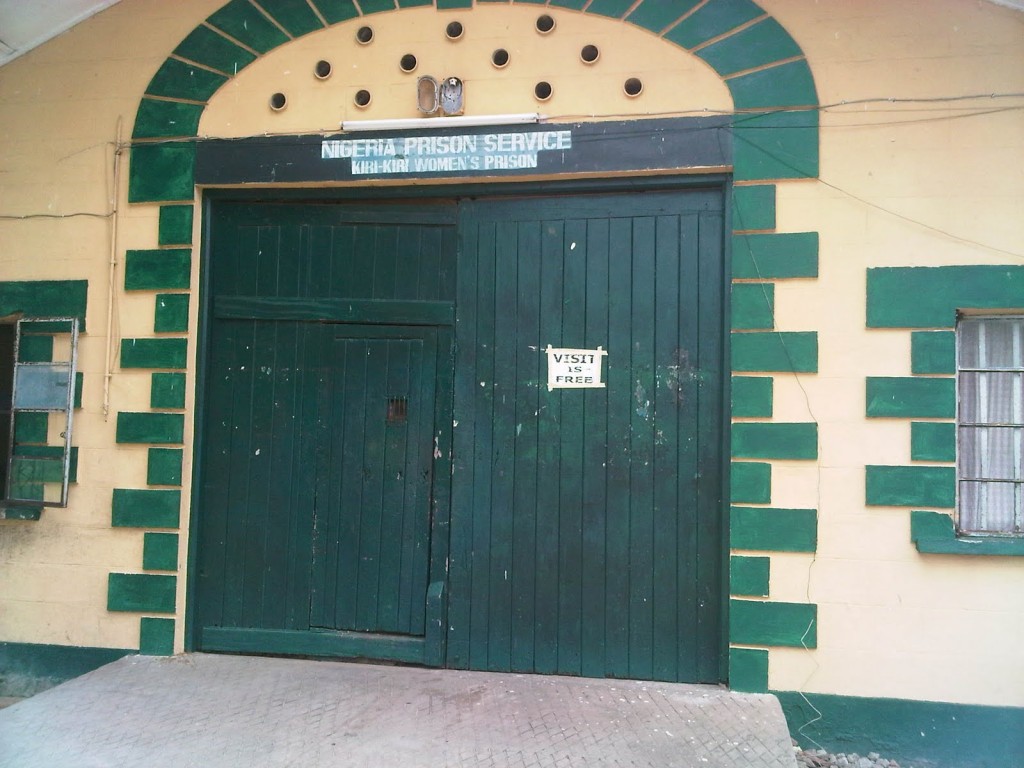
On January 9, 2014, the Nigerian and British governments announced an agreement to allow the transfer of prisoners between the two countries, five years down the line the agreement has continues to generate controversy and mixed reaction from Nigerians, in this report, OLUGBENGA SOYELE examines the pros and cons of the agreement and also the state of the Nigerian Prisons.
There’s no doubt that prisons all over the world are established to serve as reformatory and rehabilitation institutions with the ultimate objective of reorientating and reforming convicts, so that they could come out as useful members of society.
Regardless of this fact, however, the provision of prisons facilities and related services, which is a social duty of all governments, is highly capital intensive.
The United States of America has the highest prison population in the world, according to the country’s Bureau of Justice Statistics (BJS) the figure is put at 2.2 million people and the US spends $60 billion a year to run the system.
In the United Kingdom, a report puts the prison population as at 2018 to be 83,618, 79,749 men and 3,869 women. The average cost to the British taxpayer of keeping someone in prison for a year is estimated at around £40,000 (about N18.6 million).
With this background in mind, it is easy to understand the reason why the British Government proposed and signed an agreement to allow the transfer of prisoners between it and some countries including Nigeria.
According to the agreement which was signed by a former Attorney General and Minister of Justice, Mohammed Adoke and the British Justice Minister, Jeremy Wright either country can repatriate a convict with or without their consent.
The British Government also promised to give Nigeria one million pounds (about N465 million) to assist the country to embark on comprehensive prison reforms including updating facilities to enhance security and the comfort of detainees.
Under the agreement several Nigerians in the British prisons that still have more than six months to stay in prison, would be repatriated to complete their jail terms in the country.
However, unlike the Nigerian case with a population of 521 inmates in British jails, only one British national is serving time in Nigerian prison.
A report by the British Government suggested that only about 60 per cent of the 521 Nigerians in British jails may be eligible for the compulsory movement, mainly those who are serving terms of 12 months and longer.
Nigerians with British citizenship and those with residency status in the United Kingdom and others convicted for small crimes would be exempted.
But the question thrown up by the agreement is this, what other benefit does Nigeria stand to gain apart from the money promised by the British Government? To many the agreement looks one-sided.
However, five years later, the Prisoner Transfer Agreement is yet to take off, no prisoners had been transferred to either of the two countries.
The only sign of progress was a report in the media in March 8, 2018 that the British government will build a new wing at the Kirikiri Prison in Lagos, so that it can transfer Nigerian prisoners there.
In a written statement to parliament, British Foreign Secretary, Boris Johnson said tenders had been placed and a supplier identified to conduct the building work at the Kirikiri prison.
The new 112-bed wing will cost 700,000 pounds ($973,000) and be compliant with United Nations standards.
The British government, however, did not disclose how many prisoners might be moved or when the project is likely to be completed.
However, leading the opposition to the agreement are Nigerian lawmakers, on May 2,2017, the Senate urged the federal government to stop receiving prisoners under the Transfer of Sentenced Persons (TSP) from the United Kingdom.
It also invited the Minister of Justice and Attorney General of the Federation (AGF), Abubakar Malami (SAN) and his Foreign Affairs counterpart, Geoffrey Onyeama, to come to give an update on the status of the agreement.
The Senators said they were disturbed that the provisions of Nigeria’s constitution regarding section 12(1) has not been complied with, stating, “the agreement in this instance, signed by the then Attorney General of the Federation, was not subjected to legislative scrutiny or enactment by the National Assembly; the agreement is, therefore, not in force.”
Nothing, however, came out of the move by the lawmakers, as there is no record of any findings or resolution on the issue.
Some other stakeholders in the administration of justice in the country also condemned the agreement, they expressed concern that the arrangement borders on the issue of Nigeria’s sovereignty and that if Nigeria wants to retrieve its citizens from British prisons, it should be because it has the capacity, on its own, to take care of them.
Perhaps, another major reason why the prisoners transfer agreement is generating condemnation is the sorry states of the Nigerian Prisons which is already congested and underfunded.
Since 1872 when the first prison was established on Broad Street, Lagos island, with an initial inmate capacity of 300, the Nigerian prison reform system remains less than admirable even though the prison service now has 240 prisons all over the country.
The overcrowding of cells has been left unaddressed for so long, with suspects awaiting trial for decades, owing in part to obsolete criminal laws and inadequate judicial manpower.
Hardly is any new facility constructed to complement existing ones. Health care delivery for prisoners is ever short of standards and rationed meals of poor quality are still being served owing to inadequate funding.
To bring home how bad the situation really is, according to official statistics from the Nigeria Prisons Service, the nation’s prisons are more populated by awaiting trial inmates instead of convicted inmates, for whom the prisons were originally built.
The Prison congestion in Nigeria is linked to the steady rise in the figure of awaiting trial inmates who are said to constitute over 70% of the estimated 75,772 prisoner population in the 240 prisons across the country.
According to a recent report by the National Bureau of Statistics (NBS) Lagos State has the highest number of prisoners in Nigeria, 7,396 out of the national total of 75,772.
The report also disclosed that Lagos, which is the commercial hub of Nigeria, leads in prisons congestion. It has a capacity for 3,927 prisoners, indicating that it is almost 100 per cent overfilled.
According to the data released by NBS Lagos is closely followed by Rivers and Kano States with 4,424 and 4,183 prison inmates population. Kano can conveniently accommodate just 2,116 prisoners.
Rivers has one of the worst prisoner congestion ratio as it can take only 1,354, compared to the 4,424 prisoners it accommodates at present.
Bayelsa and Ekiti states have the lowest numbers of prisoners, with 444 and 585 as at last year. Even then the two states also failed to buck the trend as their cells can accommodate only 200 and 400 prisoners.
Efforts over the years to address this systemic decay has remained unfruitful, because attempts made by the National Assembly to amend the Prisons Act of 1972 have so far failed.
Beginning with the move by lawmakers under the Committees on Internal Affairs in 2001. The draft bill that came out of that effort could not be passed before the end of that legislative session.
Despite the fact that the same bill was updated in 2005 and went for a second hearing, again it could not go through the whole legislative process.
The current House of Representatives Committee on Interior is seeking to carry out major reforms of the prisons through the review of the Prisons Bill 2008. The bill is seeking for an Act to repeal cap 29 Laws of the Federation of Nigeria 2004 (Prisons Bill) with emphasis on current developments in the administration of penal reform in Nigeria.
Also in a related development, the Nigerian Prison Service was renamed Nigerian Prisons and Correctional Service sequel to the Senate passage of a Bill for an Act to repeal the Prisons Act Cap, P29 Laws of the Federation of Nigeria, 2004.
According to the Bill, the name change is “to underscore the humane aspect of the reform focus of prisons administrations and to conform to provisions in the international instrument.”
The Senate also approved a recommendation that deleted the words ‘hard labour’ and replaced it with ‘prison labour’, as it noted that “hard labour” was an inheritance from colonial era.
The bill seeks to confer ultimate powers on the Chief Justice of the Federation and the Chief Judges of States to carry out a monthly release of prison inmates whose detention is manifestly unlawful or who have been incarcerated for longer periods than they would have stayed if convicted for the alleged offence for which they were detained.
The Comptroller-General of Prison is mandated under the amendment bill to promptly send monthly returns of the entire prison inmates to both the Chief Justice of Nigeria and the Chief Judges of States who will in turn order the release of inmates who fall into the category covered by the extant Act.
Beyond these provisions of the new law, however, it has also been suggested by some stakeholders in the administration of justice that since the federal government seems to be having difficulties in funding prisons nationwide, there is the need for the amendment of the country’s Constitution to remove the prisons from the Exclusive list and place it in the Concurrent list.
This will allow the states to share in the responsibility of funding and maintaining the prisons for the benefit of the country.
There is also the urgent need to enhance the criminal justice delivery system in the country. With available statistics on the number of awaiting trial inmates, the speedy resolution of cases should be prioritized as part of the on-going reforms by the judiciary.
Some problems confronting the smooth administration of the criminal justice delivery system across the country include: the hauling of crime suspects to courts before investigations, the excessive time taken to conclude such investigations and consequent remand of such suspects.
It is also advised that since the problem of overcrowded prisons is also exacerbated by the fact that a large proportion of those incarcerated were convicted for minor offences the country should fully embrace the community sentencing option.
Since rehabilitation is the goal of any form of punishment, the country must ensure that all necessary steps are taken to make all the prisons in the country conform to global standard
